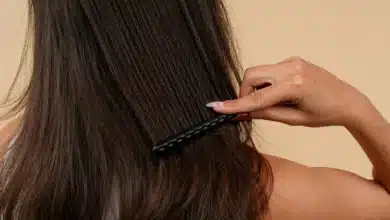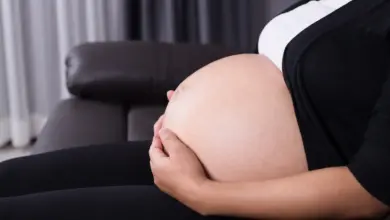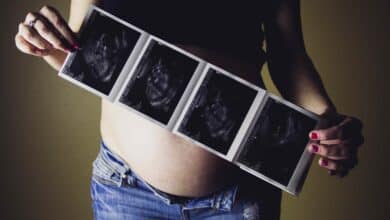All About Periods
A period or menstruation is a discharge of blood from a girl’s uterus out through her vagina. It is an indication that she is getting near the end of puberty.
The menstrual cycle is made up of periods. They occur as the hormone levels in the ovaries change, affecting the uterus.
Your girl is going through a lot of changes in puberty. Here are some frequent questions that teens face.
What Causes a Period?
A period happens because the hormones estrogen and progesterone are produced in the ovaries. These hormones make a lining of the uterus to prepare for the arrival and implantation of a fertilized egg.
An egg is released from the ovaries traveling down the fallopian tubes and towards the uterus during the menstrual cycle. The egg becomes fertilized to the uterus wall by the sperm, and the fetus begins to form. If the egg is unfertilized, this causes the uterine lining to be shed into the vagina, and thus a period occurs.
A fresh menstrual cycle starts once the period finishes.
When Do Most Girls Get Their Period?
Most girls get their first menstruation/ period when they’re around 12. But getting a period any time between age 10 and 15 is OK. The body of each female has a schedule of its own. For a female to gain her time, there’s no appropriate age. But it starts shortly with several clues, including:
- Vaginal discharge
- Major growth spurt
- Grown some underarm and pubic hair
- Developed breasts
What Does a Menstrual Period Feel Like?
A few days before and during your period, you might feel:
- Cramping and bloating in the abdomen
- Aching in the upper thighs along with lower back pain
- Nausea
- Diarrhea
- Irritability
- Headaches
- Fatigue
- Sore breasts, tummy, pimples, and greasy hair
How to Relieve Menstrual Cramps?
Period pain and related symptoms are frequent with time. If your child gets cramps and a sore tummy, back, or legs before or during their period, your child could try:
- Pain medication
- Putting a hot water bottle on lower stomach
- Light exercise
- Eating smaller meals
- Lightly massaging the lower stomach
- Have warm drinks like hot milk or herbal tea.
How to deal with mood changes before and during periods?
Many people are going to experience mood swings shortly before or throughout their first few days of periods. These changes include irritation, more sensitivity, or feeling anxious or even depressed.
It might be difficult for your child to cope with the rest of the family. Give your child a bit more privacy and space around this time without making a big deal about it.
When changes in your child’s mood disturb or interrupt your daily life, a healthcare expert like the GP might be a good idea.
How Long Do Periods Last?
Menstrual periods can vary from girl to girl because all girls are different. There might be a three-day period for one girl and seven days for another girl. It might take a few years for a girl’s period to become regular. One month might last four days, whereas the next month might be a six days period.
How Often Does a Period Happen?
Periods usually occur every 4–5 weeks once. However, some girls get their periods a little less or more often.
Can a Girl Get Pregnant as Her Period Starts?
When the period begins, a girl can get pregnant. A girl might become pregnant after her very first period because a girl’s hormones may already be active. The hormones may cause ovulation and the construction of the wall of the uterus. If a girl has sex, she may get pregnant, even though she never had a period.
Why did you Miss a Period?
There are several reasons, such as excessive stress, illness, too much exercise, and low body weight, which may also cause your menstrual period loss. You may also skip a period if you have just started having your period or an older woman approaching menopause.
If you miss more than a period or two, be sure to talk to your doctor.
Will I Have Periods for the Rest of My Life?
A woman will permanently stop her period once she reaches menopause (around age 45-55). Menopause means that a woman is no longer ovulating and therefore cannot become pregnant. Pregnant women also won’t have a period.
Menopause varies from woman to woman and may take several years to occur.
What to use? A Pad, Tampon, or Menstrual Cup?
There are many alternatives to deal with period blood. You may have to try a little to find out what works best for you. Some girls only use one approach and some switch between different methods.
- When girls receive their period, most females wear pads first. Pads come in several sizes and forms and are composed of cotton. They got sticky strips that attach to the underwear.
- Many females find tampons more comfortable than pads. A tampon is a plug of cotton that a young girl places in her vagina. The majority of tampons are equipped with an application to guide the tampon. The tampon absorbs the blood. Don’t leave a tampon for over eight hours since there is a chance of severe illness called toxic shock syndrome.
- Some girls prefer a menstrual cup made of silicon. A girl inserts it in her vagina to hold the blood until she empties it.
What Is PMS?
PMS (premenstrual syndrome) is when a girl has emotional and physical symptoms that happen to many teens right before their periods start. These symptoms can include:
- Moodiness
- Sadness
- Dietary cravings
- Fluid retention
- Anxiety
- Bloating
- Difficulty sleeping or excessive sleeping
- Acne
- Mild breast tenderness
The symptoms go away after the first few days of a period. Talk to your doctor if your symptoms are severe and interfere with your life.
Why Keep Track of periods?
It is good for your child to track the periods with apps, calendars, or diaries. If the periods of your kid are pretty regular, an application or calendar can tell your child when the time is expected. Thus your child can prepare for sleepovers, school camps, or swimming carnivals.
When to see a doctor?
Most girls have no problems with their periods. But discuss with your doctor if you:
- are 15, and your period haven’t started
- have had your period for more than two years and it still doesn’t come regularly
- have heavy bleeding or bleeding between periods
- have severe cramps that don’t get better with medicine
- have periods that last more than about a week
- have severe PMS
Periods are a healthy and natural part of a girl’s life. If you have any questions regarding periods, ask your doctor, mother, or elder sister.




